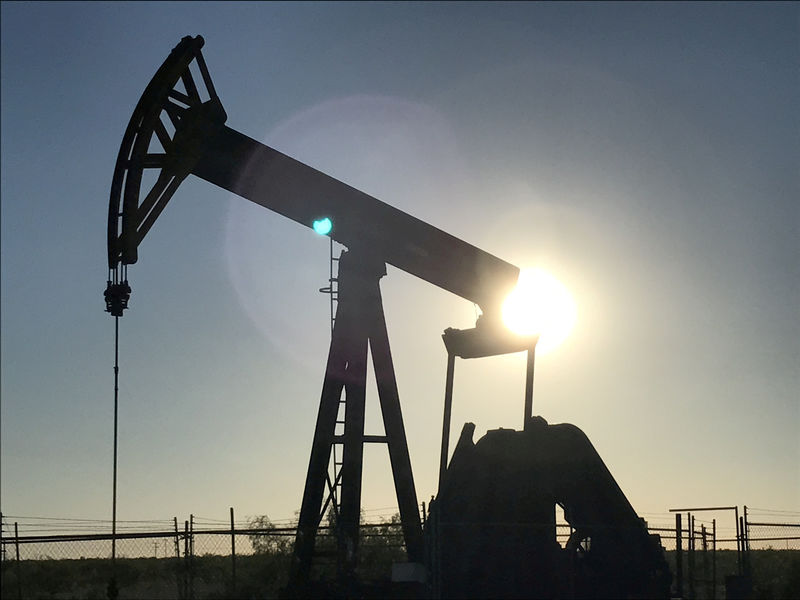By Devika Krishna Kumar
NEW YORK (Reuters) - The Permian basin in Texas is leading the way as U.S. oil production has reached an all-time high, but the prolific output is causing bottlenecks as pipelines transporting the crude have filled up more quickly than expected.
That has depressed prices there, posing a threat to future production, while providing a boost to pipeline companies as the lines have filled to near-capacity.
With few new pipeline projects scheduled for this year, producers may be forced to slow drilling, or even shut in active production.
The problem illustrates the snags that can arise in transporting crude to the U.S. Gulf Coast as oil prices have rebounded to more than $60 a barrel and companies have reduced costs to make drilling more profitable in the Permian.
Production there is estimated to have hit a record 3.08 million bpd in March, nearly a third of overall U.S. production of 10.4 million bpd, according to the Energy Information Administration (EIA). Permian drillers are branching out into relatively less-profitable areas of the region, said John Zanner, energy analyst for RBN Energy.
"As these fringe areas begin to get exploited, we are seeing more and more crude that needs to find a pipeline to Cushing or the Gulf Coast," he said.
Most analysts estimated pipelines out of the Permian would fill completely by mid-2018, but this may already be happening. According to market intelligence firm Genscape, pipeline utilization from the Permian to the Gulf Coast averaged about 89 percent this year and 96 percent in the last four weeks.
U.S. crude for delivery in Midland, Texas
Midland light sweet crude currently trades at more than $8 a barrel below West Texas Intermediate at East Houston, a key delivery spot for export markets - the biggest discount on record.
(GRAPHIC: Texas oil output surge - https://reut.rs/2EmL4nN)
"What the spreads are telling you is that these pipelines are full going to the Gulf Coast," said Kendrick Rhea at energy consultancy East Daley Capital.
The wide spreads mean pipeline operators are now seeing a surge in demand and throughput, traders and analysts said.
Spreads have even widened enough to cover spot shipping rates, which are typically higher than long-term committed rates offered by pipeline companies.
For midstream companies, this could show up in earnings reports for several quarters. Analysts' revenue projections for Permian pipeline companies Enterprise Products Partners LP (N:EPD), Energy Transfer Partners LP (N:ETP) and Plains All American Pipeline LP (N:PAA) have been revised higher over the last 90 days, according to Thomson Reuters data.
All three rank in the top 10 percent in terms of upward revisions for North American companies in the Thomson Reuters universe, and the same model projects all three will exceed revenue projections in the first quarter.
"They're going to see record flows coming out, they're going to see record margins on marketing and on walk-up tariffs for the rest of the year," Rhea said.
As of March 2018, the Permian had a total of 3.175 million bpd of outgoing pipeline, rail and local refining capacity, according to Genscape, of which outgoing pipeline capacity accounts for 2.725 million bpd.
The next boost will be the expansion of Permian Express 3, which will add 200 million barrels of daily capacity in late 2018. The Enterprise Midland-to-Sealy line could also expand capacity to bring it to 450,000 bpd from 330,000 bpd late last year.

By mid-to-late 2019, projects including the Cactus Pipeline 2 and EPIC lines will add more than 1.5 million bpd of additional capacity.